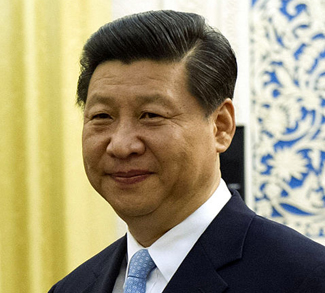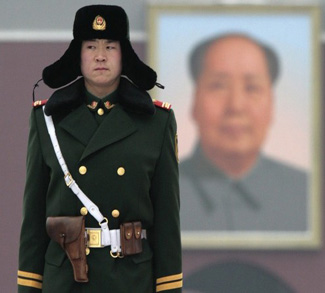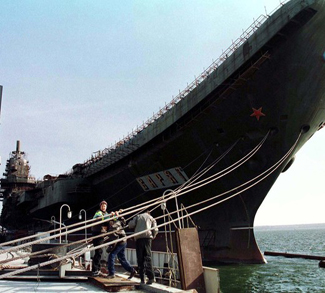A new leadership rollover in Beijing is a big deal, as these are the people who will have to grapple with the considerable economic, political, and military challenges facing China in the next decade. Even though the dust has yet to settle on the transition, say nothing of the imprecise nature of trying to prophesize future world events, there are still a few educated guesses that can be made as to the immediate policy direction of the Xi Jinping regime.
To begin with, there are a few predictions that can be made now that leadership transition is a thing of the past. These would have held true regardless of the composition of the Standing Committee.
In the foreign policy sphere, China will be climbing down from its extreme positions on the South China Sea and the deepening crisis in Sino-Japanese relations. There was more of a need for Chinese politicians to display strong personal convictions on these issues moving into the leadership transition. Now that the new leadership roster has been finalized, we can expect China to adopt a more conciliatory approach to resolving these regional disputes. This is not to say that China is going to drop its claim on the Senkaku Islands or give up its assertion that the waters directly off the coast of China are the sole military domain of the PLA Navy. Rather, the new government will distance itself from some of the more extreme steps that have been taken in the past year, such as the tolerance for mass displays of anti-Japanese sentiment across China, the spurning of Japanese diplomatic advances, and the dispatch of military patrols to the disputed area.
It’s also possible that a brief window of opportunity has opened up for China to work out an understanding on the South China Sea under the auspices of ASEAN. The new leadership will be forced to ask itself a difficult question: is it finally time to give up the (some would say foolhardy) unilateral claim on the wider South China Sea in order to forestall the possibility of deepening US military engagement in the area? The answer might just end up being ‘yes.’
The Xi Jinping regime will also be able to leverage this clean slate of legitimacy in the domestic sphere. Expect the new Chinese government to continue the country’s slow transition away from mass low-cost production to higher wages and more value-added industries. This will result in higher levels of domestic consumption and a gradual appreciation in the value of the yuan.
There will be thousands of Chinese workers who lose out in this kind of economic transition however, and it remains to be seen how the regime will deal with the political blowback that’s sure to result from the scaling back of policies aimed at mass employment.
And this is where the question on the tip of the tongue of countless Western commentators comes in: how does the new Standing Committee bode for political reform in China?
To put it bluntly: not so good.
Outgoing President Hu Jintao, who was frequently pegged as a reform-minded leader stymied by the conservative members of his own Standing Committee, seems to have lost big against Jiang Zemin in the competition over who can seed the new leadership with the most protégés. On top of incoming President Xi Jinping and Premier Li Keqiang, the Standing Committee consists of Wang Qishan, Zhang Gaoli, Yu Zhengsheng, Zhang Dejiang, and Liu Yunshan. Two of Hu Jintao’s most reform-minded protégés, Guangdong boss Wang Yang and Organization Department head Li Yuanchao, did not make the cut.
The membership of the new Standing Committee is also overwhelmingly advanced in years. Every member except for Xi Jinping and Li Keqiang will be forced to retire within five years, which means their positions on the Standing Committee will be filled by someone else after the next party congress. Essentially, it looks like the political reform buck has been passed forward until then.
There’s no need for a vibrant imagination to predict the policies that an old, conservative-minded Standing Committee will pursue because they will likely be indiscernible from the policies that preceded them.
On the corruption front, Wang Qishan (one of the committee’s more liberal members) has been given the anti-corruption portfolio and both Hu Jintao and Xi Jinping have provided a lot of lip service to the ongoing fight against graft within the CCP. However, it’s doubtful that anything major will be done when much of the Standing Committee owes their ascendance to power networks that remain both opaque and deeply entrenched.
Among the most important of these networks are China’s massive state-owned corporations. The future of these lumbering giants of state capitalism is almost a political petri dish for China watchers; where the liberal, technocratic, and market-liberalizing impulses of the new leadership will clash against the old way of doing things that has propelled them into the highest levels of the Chinese government.
But with this Standing Committee, it’s not much of a fair fight- the old ways will come out on top.
For an introduction to the Chinese politicians that made it onto the Standing Committee, as well as those who were left out, please refer to our backgrounder on Xi Jinping and the new Chinese leadership.




